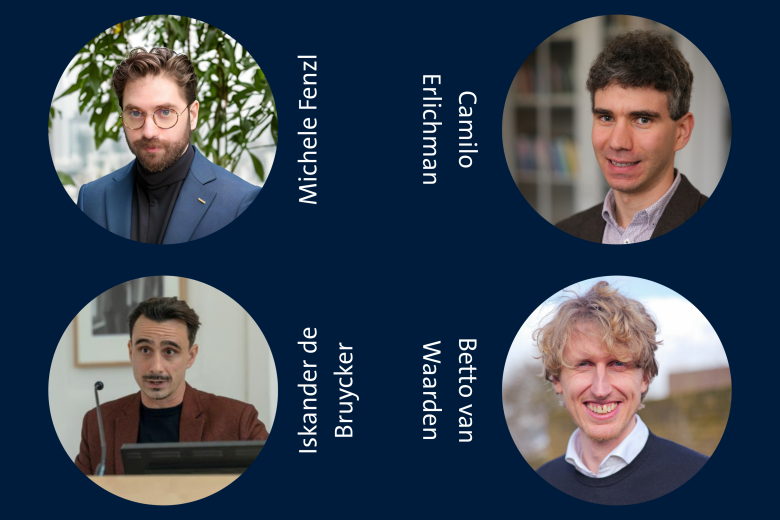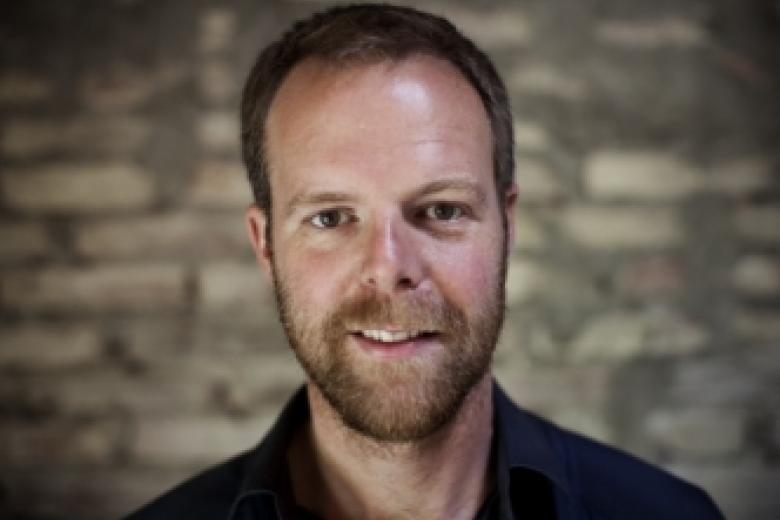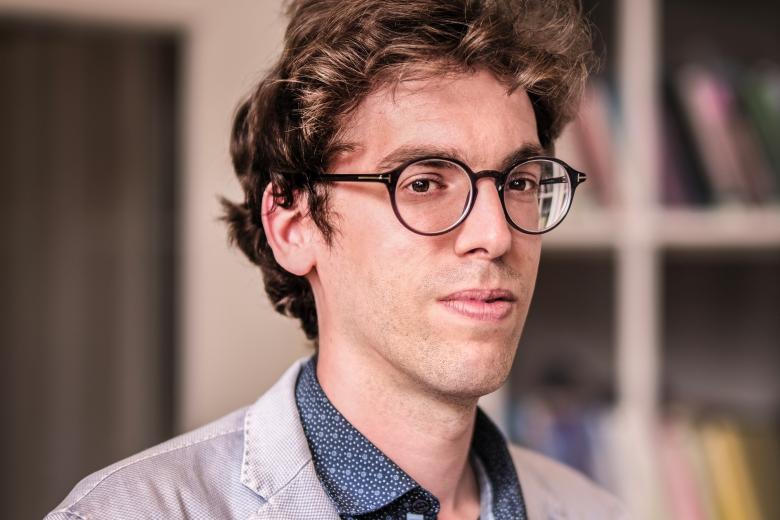Us and them: Indonesia’s migration policy
Mahardhika Sjamsoe'oed Sadjad, Assistant Professor of Transnational Migration and Social Inequalities at the Faculty of Arts and Sciences, looks at how people’s movements and mobilities shape and are shaped by social inequalities. “I investigate people’s experiences of moving between countries and encounters between the people who move and the societies that host them.”
“An interesting case study is Indonesia. With a population of over 280 million people, Indonesia has about 13,000 refugees. That’s not a lot, especially when compared to other countries in the region, like Malaysia and Thailand, so why would this even merit attention? I find it interesting that even a small population of refugees can garner a lot of media attention and frame discussions and policies pertinent to the handling of refugees –especially when there are competing narratives of solidarity and tensions between locals and refugees.”
Self-reliance of refugees
Traditionally, research on refugee entrepreneurship examines how refugees start businesses after resettling in a new country. However, Mahardhika’s research takes a different approach by looking at refugees still in transit – those stuck for years, or even decades, in countries where refugees have only limited rights and no pathway to citizenship. In Indonesia, these individuals are called ‘independent refugees’ (pengungsi mandiri) because they are not living in government-sanctioned accommodations nor relying (entirely) on aid for sustenance. Despite the term ‘independent’ that emphasises refugees’ ability of being self-reliant, in reality, they have no legal access to employment and financial services, and only limited access to education. They must find ways to support themselves while navigating a precarious existence.
Some refugees manage to start small businesses, within the informal economy, but these enterprises come with risks. “For example, a refugee in Indonesia who successfully created a business making handmade accessories faced major challenges – she couldn’t open a bank account, had no legal protection when her designs were appropriated by local businesses, and couldn’t plan for long-term growth because she didn’t know how long she would be stuck in transit. Some refugees are even detained because their enterprises are reported for being in competition with local businesses.”
A key paradox emerges: governments and international organizations encourage self-reliance among refugees, yet local policies restrict their ability to work legally. What complicates the situation is that Indonesia, like most countries in South-East Asia, is not a signatory to the Refugee Convention and the government sees this as a justification to grant only limited support for refugees living in the territory . “On top of that, Indonesian policy offers no pathway for refugees to become permanent residents or citizens. Instead, the government tolerates their presence without guaranteeing their rights, assuming they will eventually be resettled elsewhere.”
Who to help
This resettlement has, however, become increasingly rare. “In 2014, Australia, a primary destination for refugees transiting through Indonesia, stopped accepting refugees registered in Indonesia. This left thousands stranded with no clear future. International organisations like the United Nations High Commissioner for Refugees (UNHCR) and the International Organisation for Migration (IOM) provide some housing and financial assistance, but only for less than half of the refugee population in Indonesia and often at a level below the local minimum wage to avoid backlash from Indonesian citizens who struggle economically.”
According to Mahardhika, “local communities sometimes view refugees as competitors for jobs or resources. At the same time, refugees are frustrated with the UNHCR for failing to resettle them, even though the real issue lies with a global decline of support and resettlement opportunities for refugees. In 2015 and 2020, when Indonesia experienced an influx of Rohingya refugees from Myanmar, there were reports of the Indonesian government pushing back boats full of asylum seekers. At the time, local fishermen in Aceh, North Sumatra, following traditional maritime customs rather than modern state laws, rescued them out of a sense of solidarity and this received international praise. While this can be seen as heartwarming, this ‘solidarity’ is fragile. In 2023, local villagers were reported to have pushed asylum seekers’ boats back to sea after offering some basic provisions.”
“This raised broader questions: Who deserves help? Should governments prioritise their own citizens, or should those in the most desperate situations be helped, regardless of nationality? Many Indonesian volunteers assisting refugees faced criticism from their friends and families, who argued that there were already many poor Indonesians in need. Such debates reflect deeper societal struggles over identity, morality, and responsibility.”

Climate change and social inequality
Mahardhika’s research also looks at how climate change intersects with social inequality. Working with researchers from the International Institute of Social Studies in The Hague, Bogaziçi University in Turkey, and the University of Indonesia, she examines how news media reporting on climate risks like flooding and land subsidence in Jakarta highlights socioeconomic struggles. With rising sea levels and the capital city sinking due to excessive groundwater extraction, large-scale plans have been proposed, such as building a seawall in North Jakarta and relocating the capital to East Kalimantan.
These solutions often benefit the wealthy while leaving vulnerable populations at risk. This highlights a fundamental issue: climate change may affect everyone, but its impacts are far from equal.
In a study in Rotterdam, Mahardhika, working together with Dr. Theresa Audrey Esteban from TU Delft, explored how marginalized communities perceive climate risks. “In focus groups, participants were asked to physically position themselves in response to statements about social inequalities and climate change. While some wealthier participants felt secure in their ability to relocate if necessary, others expressed financial struggles and emotional ties that would prevent them from moving. These findings reveal that climate adaptation is not just about financial resources – it is deeply connected to emotions, social structures, and identity.”
Shifting the conversation on migration
A key goal of Mahardhika’s research is to challenge dominant narratives around migration. “Too often, refugees and migrants are framed as outsiders or threats to national stability. However, migration is not new – people have always moved across regions, shaping cultures and economies in the process. Meanwhile, the concept of nation-states as fixed and the technologies used to protect state borders are relatively recent inventions, and viewing mobility as a ‘natural’ part of human history can help reshape discussions, and maybe even policies, toward a more inclusive approach.”
Mahardhika claims that “international media coverage on refugees focus primarily on their resettlement in Western countries, even though about 75% of the world’s refugees and other people in need of international protection currently live in low and middle income countries. Many of these refugees, such as those in Indonesia, have no legal means of settling in their host countries or moving elsewhere. There should be an option for refugees to stay permanently if they choose, rather than existing in a state of perpetual limbo.”
By bringing attention to the experiences of refugees in transit and the inequalities linked to climate change, Mahardhika hopes to foster more nuanced discussions that go beyond simplistic debates of ‘us vs. them’.
Text by: Eva Durlinger
Pictures by: Claire Gilissen and Eka Sariwat
Also read
-
Four FASoS researchers awarded NWO XS grants
How do lobbyists use disinformation to sway policymakers? Who gets to shape the historical narrative of occupation and violence? Does growing inequality change the way citizens think about politics? And how have politicians defended “truth” across a century of media revolutions?
-
Christian Ernsten awarded funding for project on recurating colonial-era collections
UnRest focuses on the historically significant yet deeply contested archives and artworks associated with Robert Jacob Gordon (1743–1795) – a Dutch military officer and explorer whose documentation of the Cape region shaped European knowledge of South Africa during the 18th century
-
Massimiliano Simons awarded funding for innovative art–science project on hybrid plants
"Entangled Genes: Sharpening the Public Debate on Hybrid Plants” is a new artistic research project that aims to deepen societal reflection on genetically modified plants.